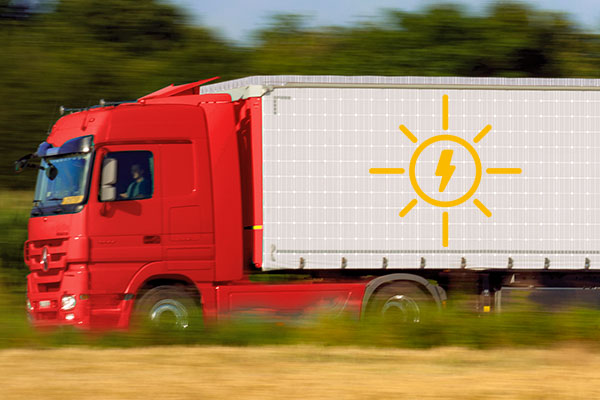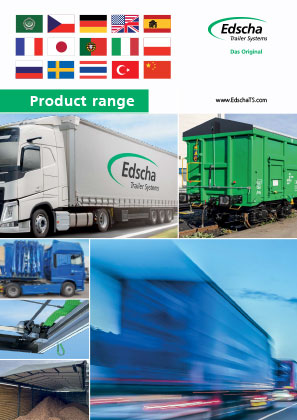New surface areas sought
Whether on roofs or on greenfield sites - the installation of solar panels requires space that is often not readily available. Why not "kill two birds with one stone", Austrian transport experts said on this topic. They covered a stretch of motorway with solar panels to solve the surface area problem. In a second step, the additional benefits envisaged must now be examined. This includes questions such as whether the construction helps to preserve the roadway and reduce the need for repairs. How much maintenance is required for the panels and the supporting structure, or how weatherproof everything is. Another interesting question is whether the PV roof can also serve to protect the roadway.

Save up to 10 percent
1.3 million trucks are on the road on German motorways every day. Their roofs collectively provide a huge, unused surface area - in a prime sunny location! The Freiburg Fraunhofer Institute for Solar Energy Systems (ISE) aims to prove that this roof area can be put to good use. Integrated photovoltaic modules should enable trucks to save more than ten percent energy. The current test vehicle with integrated high-voltage photovoltaic system and feed-in to the 800 volt traction battery is even fully approved for road traffic. Together with industrial partners and the Fraunhofer Institute for Transportation and Infrastructure Systems IVI, the Fraunhofer Institute for Solar Energy Systems ISE has developed solar modules and power electronics for integration in commercial vehicles in the "Lade-PV" (charge PV) project. The technical acceptance of the first truck equipped with these modules is a milestone towards more climate-friendly road freight transportation. By the way, the solar modules integrated into the box body make full use of the entire roof.
Textile solar cells
In this project, scientists are developing textile solar cells that will turn truck tarpaulins, awnings or sails, for example, into power sources. The challenge is that the textile has to withstand high temperatures and high pressure during coating and still be flexible. The result is a material that is stable and, because the glass fibres are very thin, still flexible. The glass fibres are woven like threads of a conventional fabric. Like a solar cell on the roof, the thin, textile version consists of several layers. To even out the unevenness of the woven, silicon-based glass fibre material, a levelling layer of silicone is placed on top. This makes the surface smooth enough and allows electrodes made of conductive polymer to be attached to the top and bottom. These are then wired together. Another layer protects the electrodes from external influences, such as the weather.
Origins from Krefeld
Incidentally, in the mid-2000s, the German Textile Research Centre North-West in Krefeld had already been involved in the development of textile solar cells and was an initiator for other teams. The "Environmental Technology and Catalysis" working group based there tested various textile substrates as carriers for the photoactive layers. A mixture of titanium oxide and dye proved promising as a carrier substrate. Unfortunately, the research funds have run out.
Not far from Krefeld, you will find Edscha TS, the innovation driver and market leader in sliding roof systems, in Moers. Edscha TS is in discussion with many companies from the development sector and discusses the diverse possibilities from science and practice.






